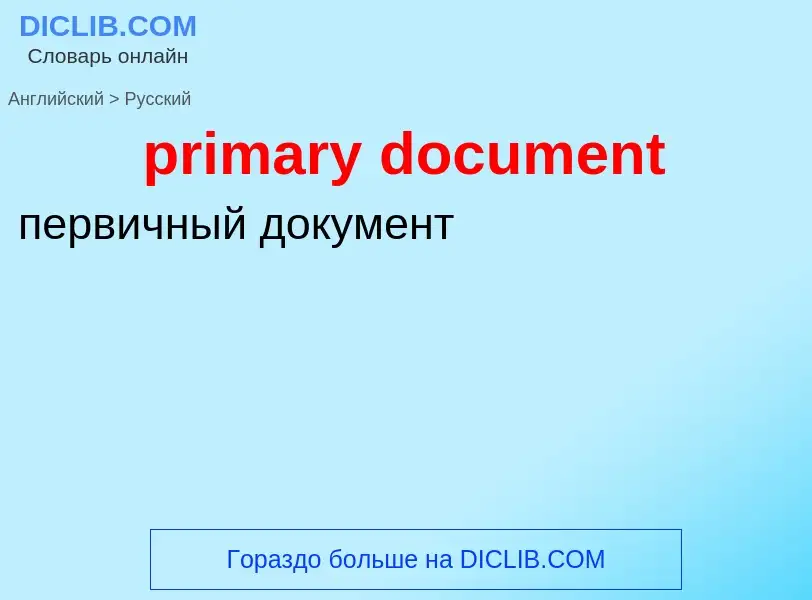Vertaling en analyse van woorden door kunstmatige intelligentie ChatGPT
Op deze pagina kunt u een gedetailleerde analyse krijgen van een woord of zin, geproduceerd met behulp van de beste kunstmatige intelligentietechnologie tot nu toe:
- hoe het woord wordt gebruikt
- gebruiksfrequentie
- het wordt vaker gebruikt in mondelinge of schriftelijke toespraken
- opties voor woordvertaling
- Gebruiksvoorbeelden (meerdere zinnen met vertaling)
- etymologie
primary document - vertaling naar russisch
Definitie
Wikipedia

In the study of history as an academic discipline, a primary source (also called an original source) is an artifact, document, diary, manuscript, autobiography, recording, or any other source of information that was created at the time under study. It serves as an original source of information about the topic. Similar definitions can be used in library science and other areas of scholarship, although different fields have somewhat different definitions.
In journalism, a primary source can be a person with direct knowledge of a situation, or a document written by such a person.
Primary sources are distinguished from secondary sources, which cite, comment on, or build upon primary sources. Generally, accounts written after the fact with the benefit of hindsight are secondary. A secondary source may also be a primary source depending on how it is used. For example, a memoir would be considered a primary source in research concerning its author or about their friends characterized within it, but the same memoir would be a secondary source if it were used to examine the culture in which its author lived. "Primary" and "secondary" should be understood as relative terms, with sources categorized according to specific historical contexts and what is being studied.: 118–246


